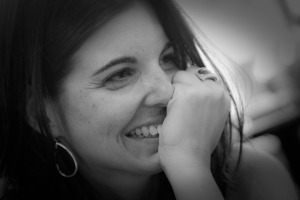Accepting what is to come
Thursday, January 13, 2022
Happy 2022
Saturday, December 25, 2021
Christmas Eve 2021
Friday, December 10, 2021
What can your kitchen tables tell if asked?
I like round tables and so does my brother, Max. When he goes out to eat, he asks for a round table. What does that circle mean to us?
Monday, December 6, 2021
Writers' Digest through the years
Friday, December 3, 2021
My Word this Week
Sunday, November 28, 2021
Thanksgiving is over, but good memories will linger.
Thursday, October 21, 2021
She had doubts that COVID was real, or as bad as the news made it seem.
I am saddened to hear of the passing of Colin Powell, a man who was a reluctant warrior who hated war, and was the kind of man we need in leadership. He admitted the error of going to war thinking the enemy had weapons of mass destruction. Although he stood with President Bush, his last public statement was a speech for Barack Obama. I read the book he wrote about his life and was compelled to send the book to a young man in my family because I thought Colin Powell's values are what we should all aspire to.
He died not from COVID but from cancer he was fighting and other health issues. He was vaccinated but caught a breakthrough case and because of his health issues, his age, 84, he could not recover. This reminded me of the article I quote below from Everyday Health, an online magazine I subscribe to.
FROM
EVERYDAY HEALTH
Although she says she was taking precautions against the virus (like social distancing and wearing a mask), Fekken admits she had doubts that it was real, or as bad as the news made it seem.
Then
she and her husband got COVID-19.
“I
didn’t have to go to the hospital, but there were days where I wondered if this
was the beginning of the end for me,” she says. “I’ve never experienced
sickness like that before. I’m a pretty optimistic, upbeat person, but COVID
made me feel hopeless because it truly shut me down.”
For
three weeks, the normally hurricane-level-busy Fekken struggled to walk from
the bedroom to the porch for fresh air — a distance of about 20 feet. She lost
her smell and taste, suffered from fever spikes that left her soaked, and
watched TV with her eyes closed because of ocular headaches. Every day, she focused
on deep-breathing exercises suggested by her daughter, a paramedic, but even
that was exhausting. Self-care meant simply surviving until the next day.
“We
know people who have died of this, including three people who were in my high
school graduating class, and once we started to feel better, I felt changed,”
she recalls. “I had a huge sense of gratitude and a new respect for the virus.
I started to appreciate everyday things I used to take for granted, like
walking down the driveway to get the mail, or being able to smell what I’m
cooking.”
Although
Fekken’s sense of smell has returned, she still can’t fully taste her food,
even six months after recovery. Her self-care now is more modest than it was at
the beginning of the pandemic, she says, but also more meaningful. She’s not
focusing on distracting herself during a lockdown, but rather on recognizing
the seemingly small moments and tasks she once did without thinking.
“I’d like to think I’ve always appreciated my life, but
getting COVID-19 made that take on a new meaning,” she says. “Everything I do
feels like a gift.”
**************************************************************************
This woman was fortunate to recover, but if she had been sick with cancer or diabetes or other serious illness, she likely would not be here today. And I wonder how Colon Powell was exposed to COVID. Did someone who was not vaccinated come to visit him, or did he come in contact with an unvaxed person by going to his doctor's office or the drugstore? Those of us who are older and have a chronic illness, even though we get the shots, are at the mercy of others. Love thy neighbor. Get the vaccine.
After being tested for COVID this week, I had to quarantine until I got results. This morning, early, I received a call telling me the test is negative. I felt I was not sick with that virus, but to have the test verify, makes me feel much better now.
Sunday, October 10, 2021
Writing Memoir - Six Questions that block the process
- Where do I begin?
- How can I possibly put everything in my long life into a book?
- How do I write about things that happened before I was born?
- Can I write unflattering truth about my family?
- What kinds of things should I write about?
- Why should I write about myself?
"Make a habit of reading what is being written today and what was written by earlier masters. Writing is learned by imitation. If anyone asked me how I learned to write, I’d say I learn by reading the men and women who were doing the kind of writing that I wanted to do and trying to figure out how they did it. I write entirely by ear and read everything aloud before letting it go out in the world." William Zinsser
If you want to write memoirs, read good books.
Best memoirs are character-driven and are written in
scenes.
Angela's Ashes - by Frank McCourt is character-driven
The Glass Castle – by Jeannette Wall is character-driven
Traveling Mercies - by Anne Lamott
Writing Your Life Story by Kelley Notaras
I would love to know your favorite authors and your favorite memoirs. What did you like about the books?






